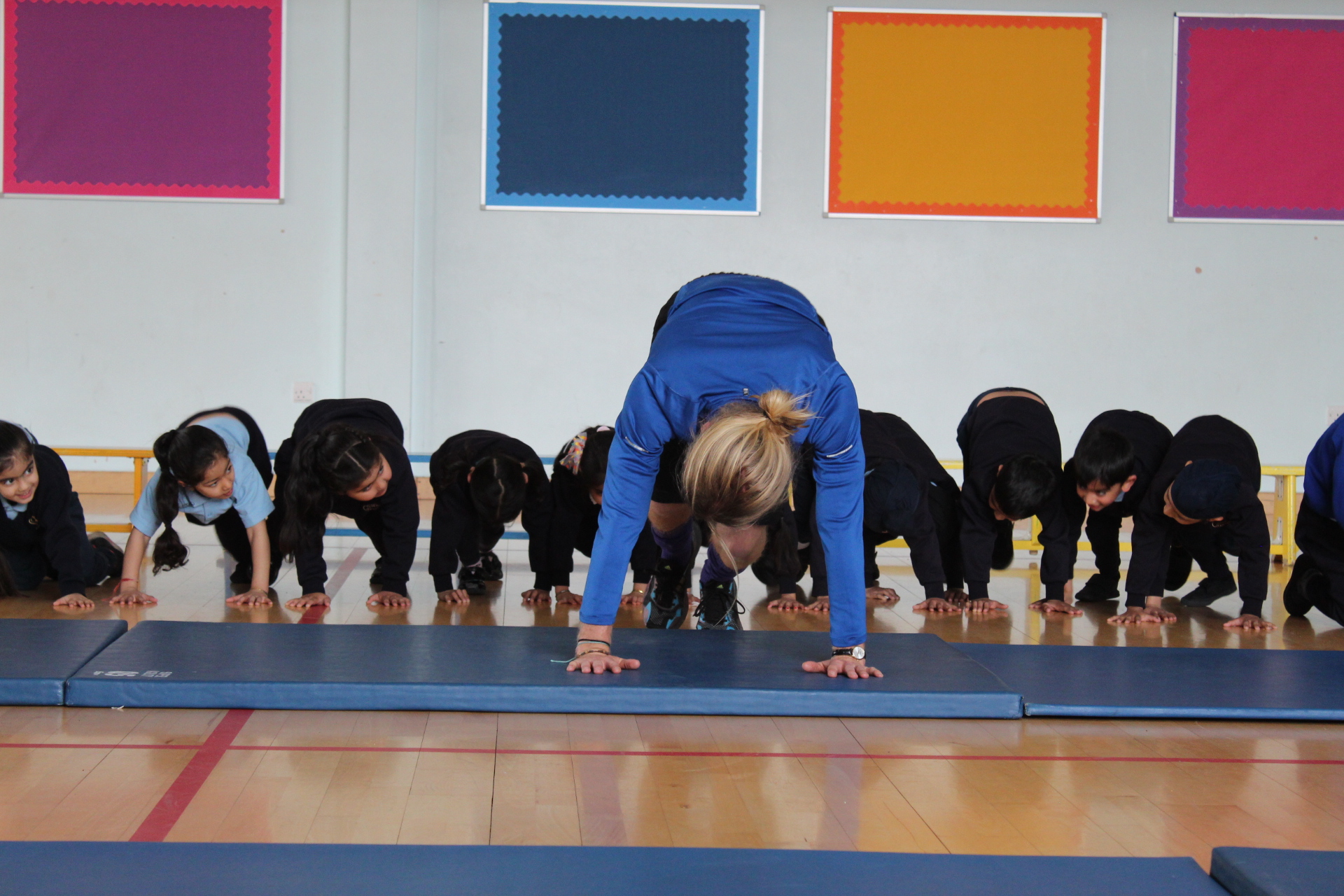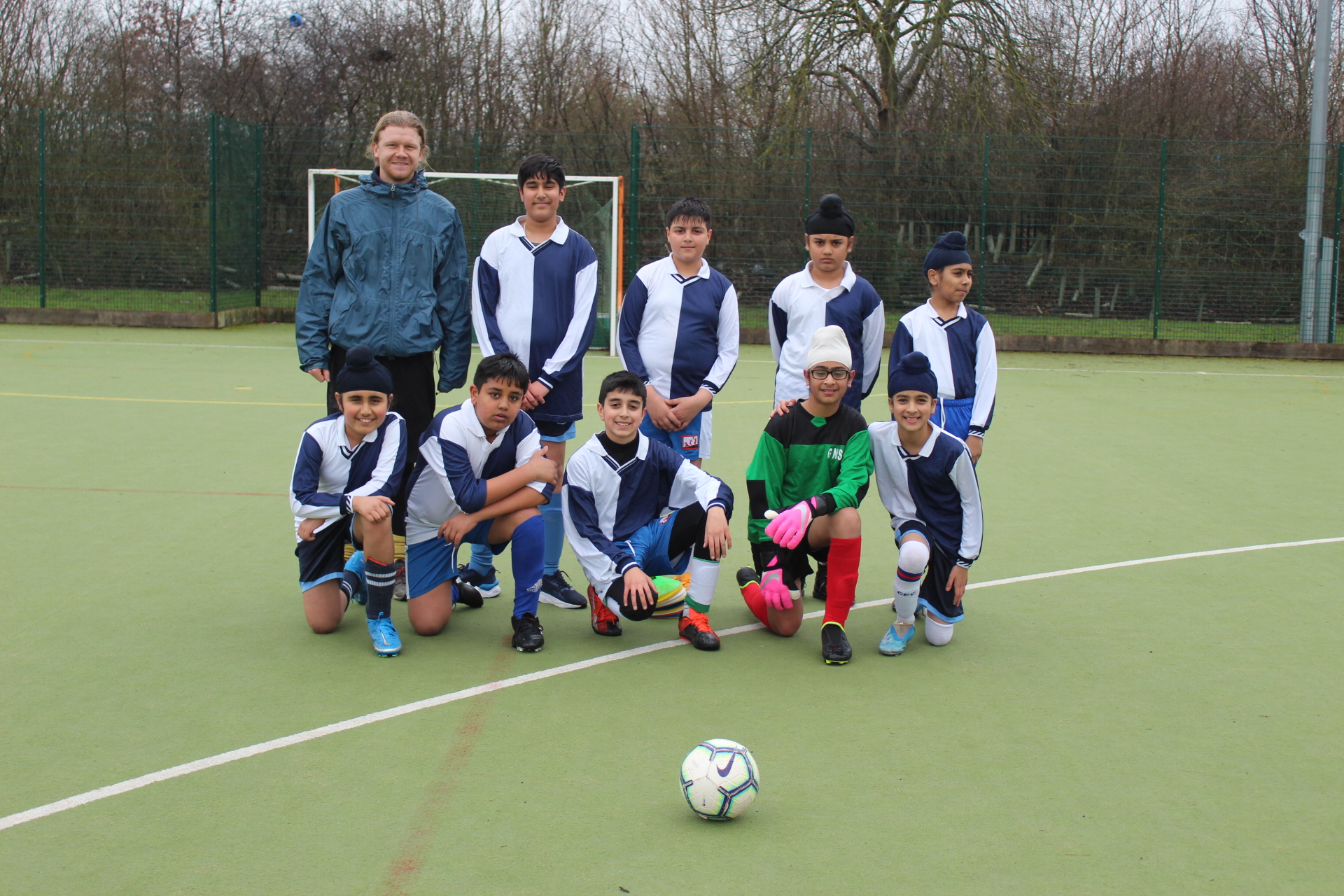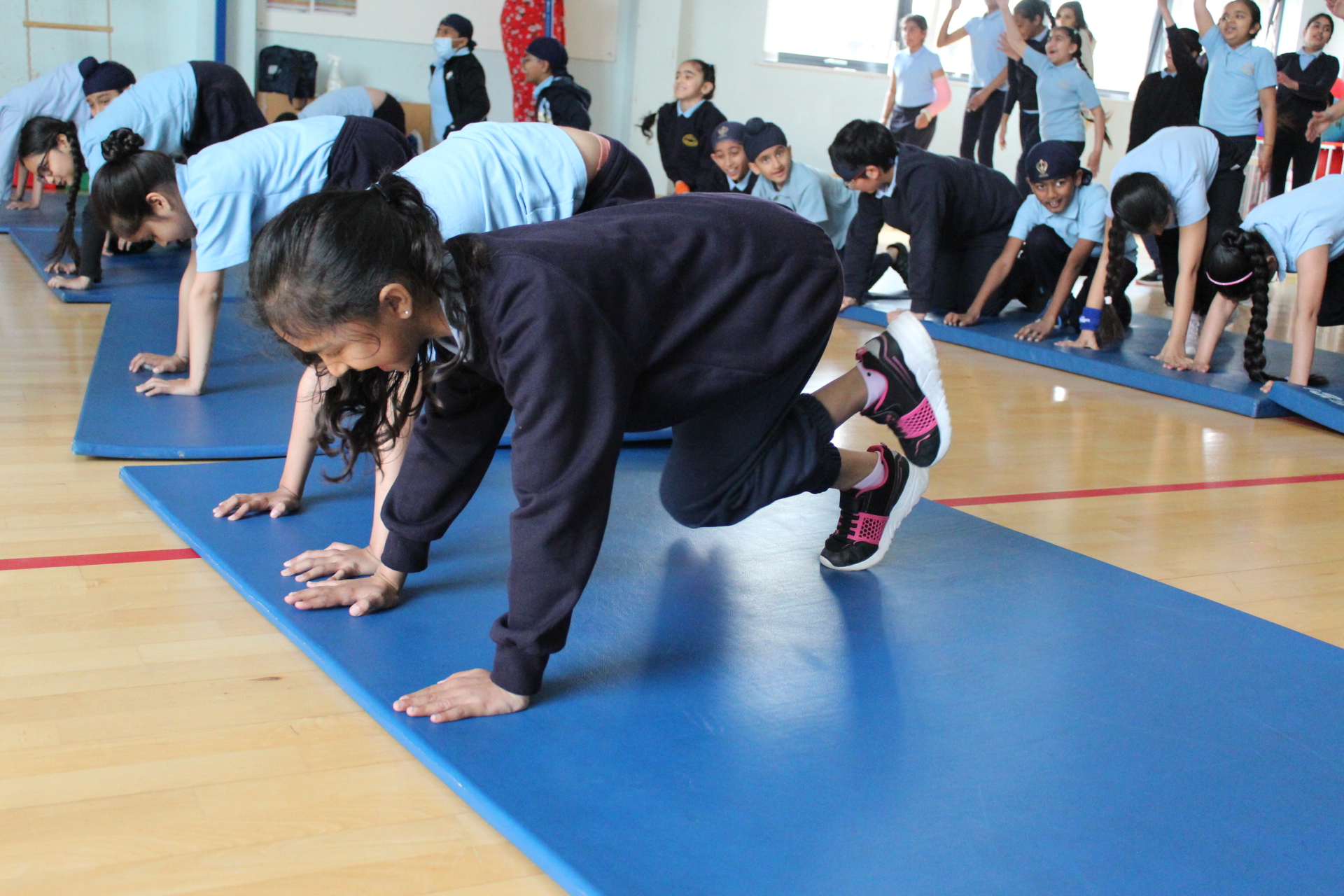
Home
PE
Our aspiration for every learner:
At Guru Nanak Primary School we believe that Physical Education (PE) is a vital contributor to a pupil’s physical development and well-being. It is our intention to offer all our pupils the opportunity to develop knowledge, skills in a range of sporting activities, equipping them with the ability, awareness and inspiration to partake in a lifelong love for physical activity.
We are passionate about the need to ensure our inclusive PE curriculum provides all pupils with the opportunity to develop lifelong values and skills that go beyond physical development, such as communication, cooperation, fairness, respect, confidence, tolerance and resilience.
We believe PE provides opportunities for pupils to develop their creative, personal, social, physical & cognitive abilities as well as offering competitive and challenging activities where they develop a desire to challenge themselves. This involves thinking, selecting and applying skills, as well as promoting positive attitudes towards a healthy lifestyle. As a result, we enable the children to make informed choices about physical activity beyond Key Stage 2.
Aims and Objectives of teaching PE in our school are:
- To develop competence to excel in a range of physical activities.
- To develop their ability to be physically active for a sustained period of time.
- To encourage pupils to collaboratively work, play and solve problems in competitive sporting activities.
- To teach pupils how to recognise how their bodies and mind feel during exercise.
Pupils learn how to think in different ways to suit a wide variety of creative, competitive and challenging activities. They learn how to plan, perform and evaluate actions, ideas and performances to improve their quality and effectiveness. Through this process pupils discover their aptitudes, abilities and preferences, and make choices about how to get involved in lifelong physical activity. We believe that PE has the potential to make significant contributions to, and provide substantial support for, many other areas of the school curriculum.
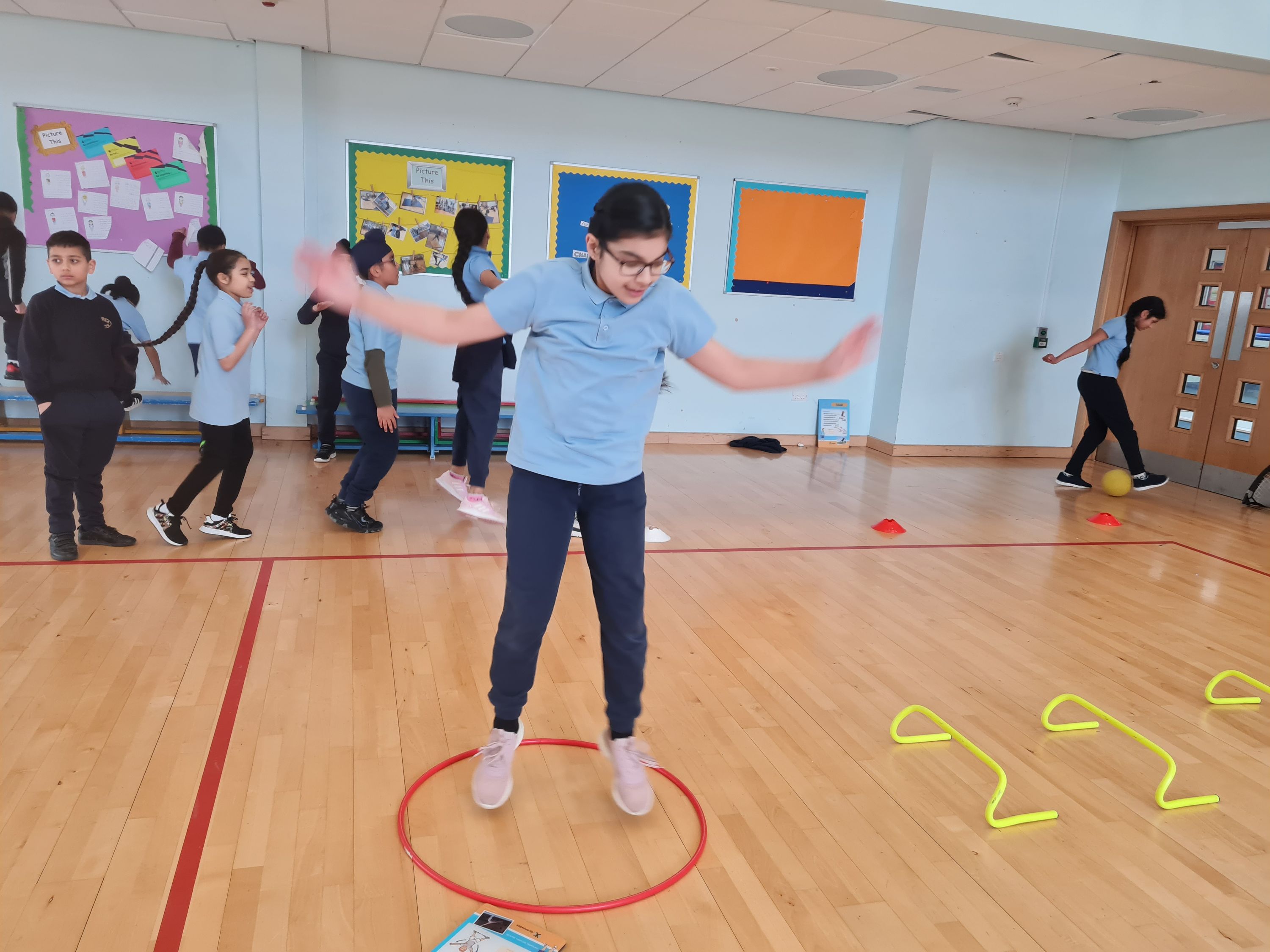
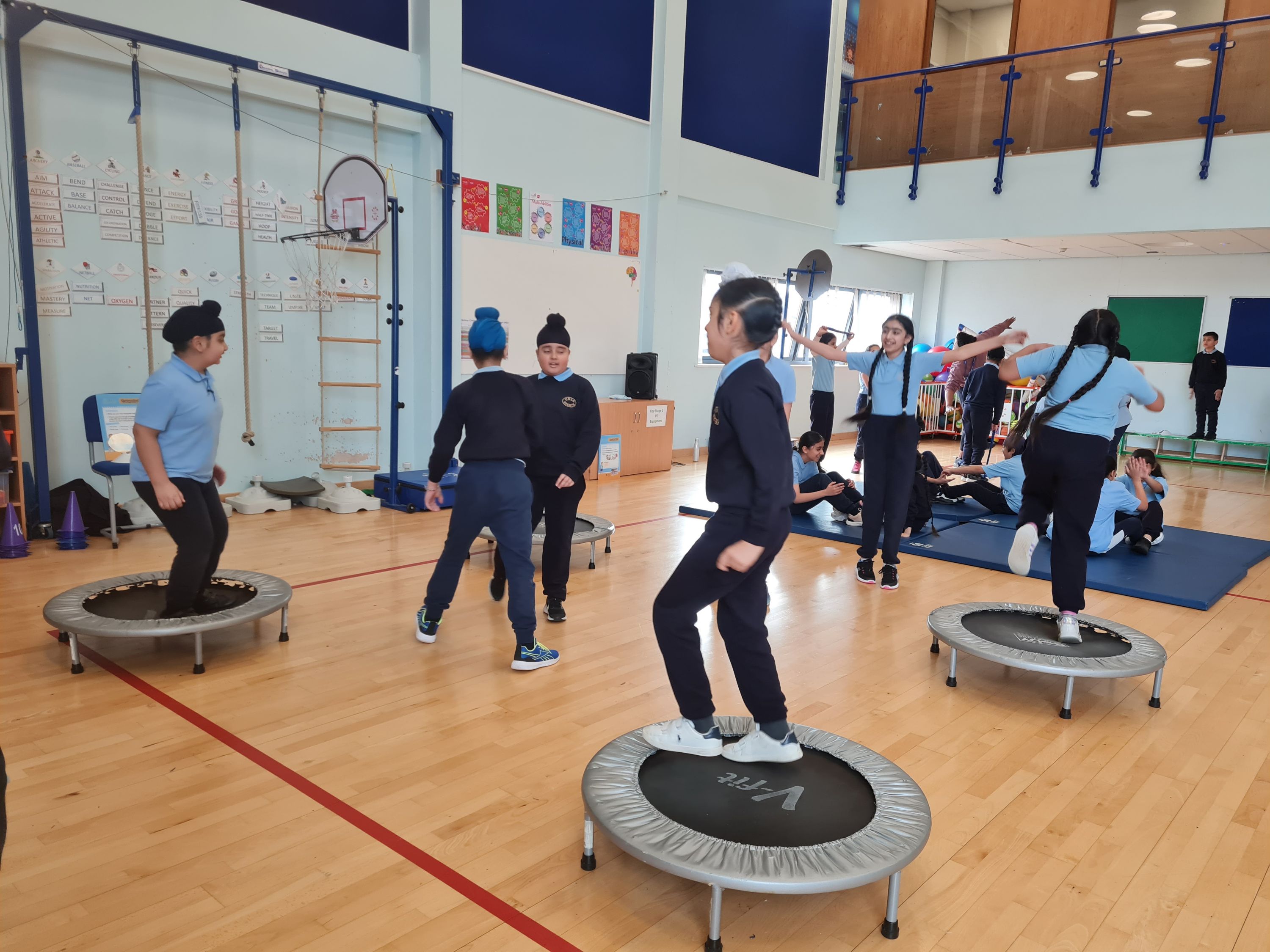
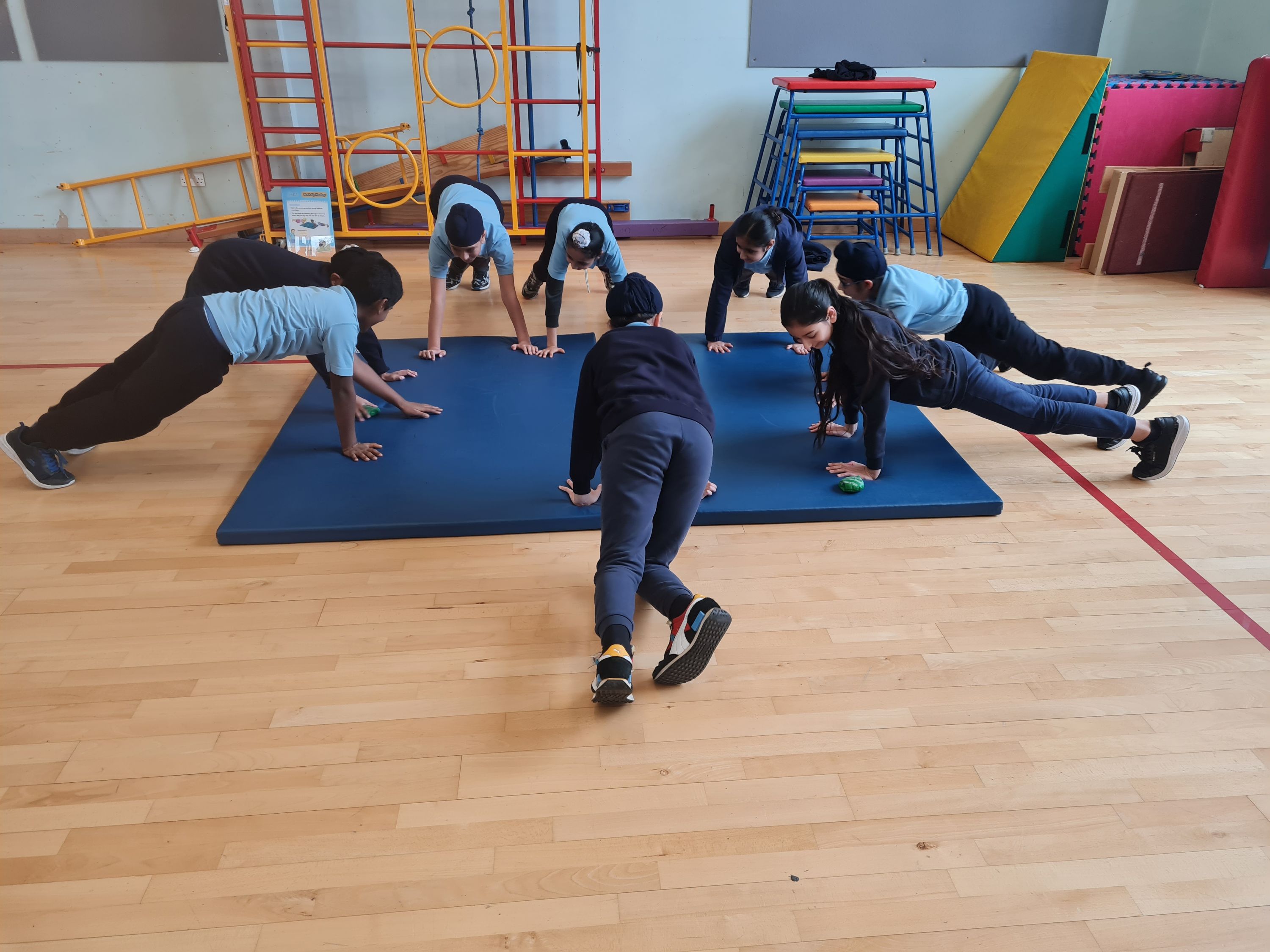
How we support our pupils to acquire this learning:
They will also consider the way that the curriculum developed or adopted by the school is taught and assessed in order to support pupils to build their knowledge and to apply that knowledge as skills
Our PE curriculum offers pupils the opportunity to develop skills required in a variety of sporting and physically demanding activities. This variety is offered through pupils focusing on a different type of sporting activity each half term (Invasion games, Gymnastics and Dance, Net and Wall games, Striking and Fielding, Athletics and Multi Skills, Outdoor and adventure activities). These games are adapted, depending on the age and level of the pupils. The sequencing of the sports and games that the pupils experience, takes into account the three main principles of cognitive science. Spaced repetition is provided through pupils having the opportunity to repeatedly practice skills and knowledge that are required in different sports and physical activities at different points in the school PE curriculum. Pupils learn how to develop and apply transferable skills between different physical activities, which offers them interleaving opportunities. There is also regular retrieval practice opportunity where pupils use and apply sport specific skills learnt in previous years. Pupils are also encouraged to evaluate their own work as well as the work of others, so that they are aware of how they can master their skills.
Pupils do not only gain exposure to competitive sport in lessons but also through competing with other schools in the sports, such as gymnastics, football, netball and athletics. In Year 4, pupils also have the opportunity to develop their swimming capability with the support of professional swimming coaches through swimming pool visits. Year 6 pupils also have the opportunity to complete the level 1 and 2 Bikeability course. Pupils are also offered the opportunity to participate and experience in a range of school sports clubs that take place before and after school.
How we measure our achievements:
- Pupils are able to compete with themselves and others respectfully, remaining resilient when faced with challenges.
- Pupils are able to evaluate their own and others’ performance, competently sharing knowledge and strategies of how performance can be improved.
- Teachers are aware of the pupils’ level and constantly reflect on how they can achieve their next steps.
- Pupils are aware of the rules and vocabulary of a range of sporting activities, with an understanding of how tactics can impact their performance.
- Regular verbal feedback is given within lessons to praise and ensure children are apply the correct technique;
- Pupil discussions used at the end of lessons to reflect on learning including successes and areas of improvement.
What are the outcomes pupils have achieved as a result of the education they have received?
- All pupils have the opportunity to improve their wellbeing and fitness; not only through the sporting skills taught, but through the underpinning values and disciplines that PE promotes.
- Pupils are aware of the effects and benefits physical activity can have on their health and this aims to provide a foundation of a lifelong love for physical activity, where pupils actively develop an ownership and responsibility to take care of their health and wellbeing.
- Pupils are able to apply their sporting skills to a range of sporting activities.

